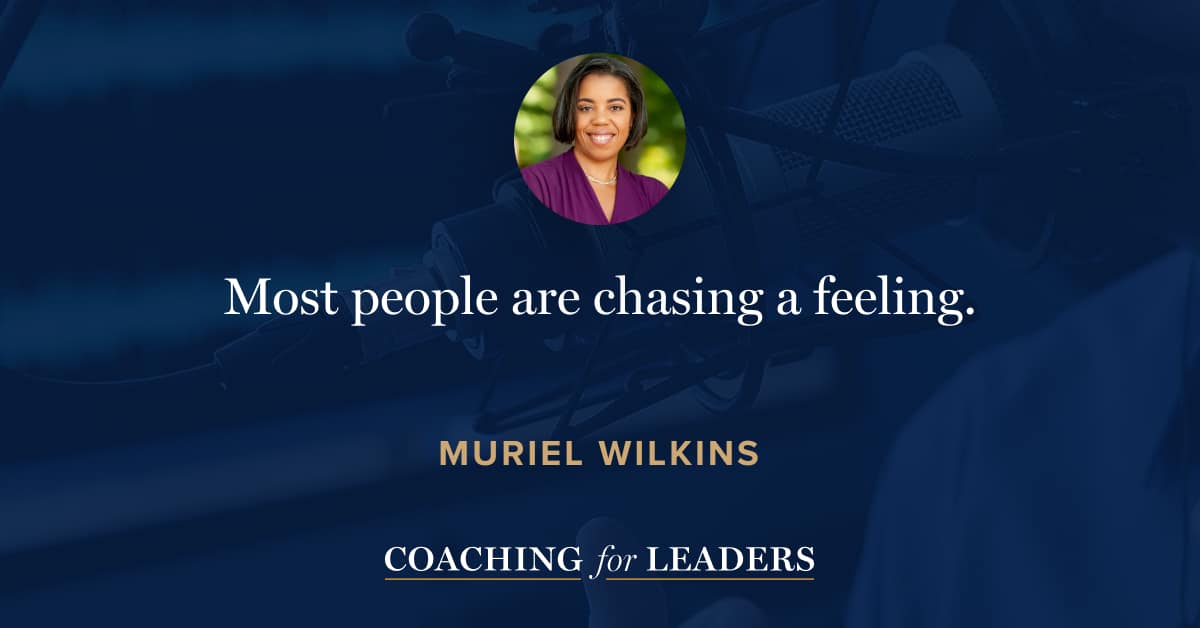Muriel Wilkins: Coaching Real Leaders
Muriel Wilkins is Managing Partner and Co-founder of Paravis Partners. She is a C-suite advisor and executive coach with a strong track record of helping already high performing senior leaders take their effectiveness to the next level. She is also the host of the Harvard Business Review podcast, Coaching Real Leaders and is the co-author, with Amy Su of Own the Room: Discover Your Signature Voice to Master Your Leadership Presence*.
Prior to entrepreneurship, she served on the senior team of U.S. News & World Report and also did marketing and strategy work at Accenture and The Prudential. Muriel has been recognized by the Washington Business Journal as one of Metro-DC area’s Top Minority Business Leaders.
In this conversation, Muriel and I reflect on our recent client work in order to surface some of the current struggles leaders are facing. We discuss a few trends we’re seeing in relation to diversity, the great resignation, binary thinking, and human relations. Plus, we make a few practical invitations to leaders in order to avoid some common missteps.
Key Points
- Leaders are making the shift from explanation to inquiry in relations to diversity, equity, and inclusion. The next step for many leaders is to consider how they use their power to affect change to the system in the organization.
- Many leaders are considering the, “Should I stay or should I go?” question without the full context of impact and feeling. Begin by considering the impact you wish to have before making a major change.
- Beware the trap of binary thinking. Often leaders get fixated on “OR thinking” without considering the opportunity for “AND thinking.” If you catch yourself thinking in “ors” consider how you might bring in some “ands.”
- Leaders who inherently see value in people development can tend to write off other leaders who they see as only focused on the numbers. It’s helpful to realize that the larger objective is often shared, but style is different. Meet people on their terms with their language.
Resources Mentioned
- Own the Room: Discover Your Signature Voice to Master Your Leadership Presence* by Muriel Wilkins
- Coaching Real Leaders podcast
Related Episodes
- Enhance Your Executive Presence, with Muriel Wilkins (episode 272)
- The Way Out of Major Conflict, with Amanda Ripley (episode 529)
- How to Win the Long Game When the Short-Term Seems Bleak, with Dorie Clark (episode 550)
- How to Use Power Responsibly, with Vanessa Bohns (episode 551)
Discover More
Activate your free membership for full access to the entire library of interviews since 2011, searchable by topic.





